Boko Haram has held Nigeria in its grasp for over a decade and though they try to escape history has shown that when one evil die another takes its place. Can Nigeria finally overcome the terror caused by the large-scale kidnappings and horrific killings inflicted on its population by Boko Haram? This Jihadist terror group has targeted Christians in Nigeria, Southwest Chad, and Northeast Cameroon, wreaking havoc here. Jihadist movements have posed serious threats to Nigeria’s population and its future, so what does that mean for the fate of all Nigerians? Can they free themselves from terrorism as a whole?
Boko Haram Terror Tactics
“Jama’atu Ahlis Sunna Lidda’awati wal-Jihad” translated means The People Committed to the Propagation of the Prophets Teachings and Jihad this Islamic terrorist group came to be commonly known as Boko Haram which itself can be loosely translated to mean ‘Western education is wrong’. Boko Haram is one of the most powerful and feared Islamic terrorist groups in Nigeria. It stems from a version of Islam that views partaking in western culture, in any political or social form, as harmful and not does not align with the true ideals of Islam. Boko Haram, like many Islamic states, was founded on the basis of creating a perfect Islamic state by suppressing all western influence. This included expelling Christians from Nigeria by any means necessary. 1
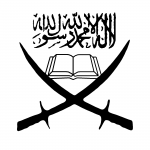
From its founding in 2002, Boko Haram’s attacks have displaced an estimated 2.5 million people and killed over 50,000 civilians. Boko Haram has affiliated itself with ISIS and al-Qa‘ida. In 2013, the group was officially categorized as a terrorist group by the United States’ Government. 2. National Counterterrorism Center: Terrorist Groups. National Counterterrorism Center | Terrorist Groups, retrieved 4/5/2025 https://www.dni.gov/nctc/terrorist_groups/boko_haram.html.]

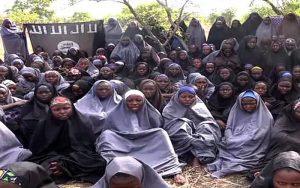
Shekau used harsher tactics with one of their biggest attacks in April 2014 when JAS, still commonly referred to as Boko Haram, kidnapped hundreds of schoolgirls from Chibok. Shekau warned this was retaliation for Nigerian security forces having killed women and daughters who supported the group. The girls were taken by force to provide forced labor and sex slaves for Boko Haram members.4 Statements released by group leaders said that these attacks on schoolgirls were the start to a larger and more bloody campaign.5
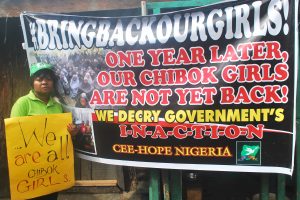
To this day only 100 of the girls have been released many are still missing and the initial kidnapping in Chibok was far from the last kidnapping of young girls in Nigeria.6
Nigeria’s History
Examining religious extremist groups, such as Boko Haram, requires a deeper look into Nigeria’s history and the impacts of religion and colonization on the Nigerian population.
Prof Ali Mazrui describes Nigeria as one of the countries where the influence of Islam is most prevalent by the way Islamic laws were incorporated into its institutions. Sharia or Islamic law plays a major role in Nigeria’s social framework. First introduced in the 11th century via trade Islamic law now plays in integral part in Nigerian governance ranging from marriage and divorce to inheritance. Islam took a strong grasp in northern Nigeria where Boko Haram primarily operates. Major city-states in this region quickly adopted Sharia law with its courts acting as justices of Islamic principles. Scholars that traveled with the spread of Islam helped to integrate traditional African way of life with these new ideas being presented. The centuries of Islamic influence persisted in both legal and also social ways of life in northern Nigeria, still evident today.7 Sharia Laws impose and protect the Islamic cultural identity in Nigeria. During the British colonization of Nigeria, the British tried to impose the English common law in Nigeria yet, Sharia persevered and was not eliminated from Nigeria’s legal system instead many courts fused the two together adding to the already rich blend of identities already present in Nigeria. The indigenous, Islamic, and British history all add to Nigeria’s legal pluralism 8 In 2000, a handful 0f northern states officially adopted Sharia law leading to hundreds of deaths of hundred that resulted from the clashes and protests between Christians and Muslims in these states. This marks the escalation of deadly conflicts between Muslims and Christians that have increased and fostered the rise of Boko Haram.9
The religious history of Nigeria plays a major role in the development of Boko Haram, but so does the political history of Nigeria. Prior to Nigeria’s colonization by the British the Islamic Sokoto caliphate was founded in the north and only 50 years later in 1850 the British established a presence in Lagos. The British would have control over Nigeria until 1960. Independence did not mean political rest for Nigeria unfortunately. 1960, Nigeria gains independence and forms a coalition government which the nation enjoyed for only 6 years under Prime Minister Sir Abubakar Tafawa Balewa. In 1966 Mr. Balewa was killed in a coup by Maj-Gen Johnson Aguiyi-Ironsi and Nigeria came under a military government and a few months later Maj-Gen Johnson Aguiyi-Ironsi is killed in another coup. This cycle of coups and military governments would continue until 1999 when Nigeria held a parliamentary and presidential election bringing an end to the corrupted military rule. These years of political corruption allowed for conflict to emerge amongst the Nigerian states. The Biafran War a 3-year civil war sparked by 3 states seceding from Nigeria is only one example of tensions in Nigeria at the time. 10
Yet, coup after coup and government after government Nigeria never truly stabilized after their independence. They were plagued by corruption. There was hope when the first civilian presidential election held in 1999 placed Olusegun Obasanjo as president. This marked the first election since the start of Nigeria’s military government. Unfortunately, there was little done to fix any lasting legacies of previous corrupt governments, and with lack of change Boko Haram had enough chance to emerge. 11
The Splinter Groups
Back in 2015 when JAS pledged allegiance to the IS state in Iraq and Syria (ISIS), they briefly took on the name Islamic State West Africa Provience (ISWAP). At this time the group facing internal conflict over leadership tactics leading to the group breaking off into two factions, one kept the ISWAP name and gained formal recognition of their group from ISIS, the other was Abubakar’s faction who maintained as the JAS 12
In 2021 Abubakar Shekau, was announced dead by rival militant group ISWAP in an audio message that Shekau had killed himself via explosive. It is possible that Shekau killed himself when ISWAP attacked Boko Haram in the Sambisa Forest. This death unfortunately did not mean the end of jihadism in West Africa. At this time while Boko Haram’s numbers were falling, and leadership was failing their rival group ISWAP was gaining traction and was becoming more prominent in this area. The ISWAP also proved to be more successful at carrying out attacks against the Nigerian military. This made ISWAP more attractive to Boko Haram’s members causing many to leave Boko Haram to join ISWAP. This is positive as it means an end to fighting between the two groups however it does mean that Islamic terrorist groups still have a hold over Nigeria. 13
The battle between two Islamic terror groups was impacting not only Nigeria but its neighbors as well. Lake Chad has been plagued with both groups taking control of its islands. Cameroon is feeling the damage from these organizations as well as the groups push further and further north. It has been a constant back and forth with which group commands power. For a while after Shekau’s death the ISWAP was the dominant group but under new leadership the JAS has been able to hold their own even taking the offensive by claiming territory that once belonged to the ISWAP. Both groups have left serious damage on the other however the ISWAP has continued to gain fighters and is still holding control over northeast Nigeria and the JAS is preying upon civilians by Lake Chad and in the Mandara mountains. 14
What sets these two groups apart is quite simple it is their disagreement on the treatment of civilians. JAS sees anyone as free game for pillaging and sees any village as its new stomping grounds while ISWAP takes on a more bureaucratic approach of taking and recruiting rather than stealing and plundering. The tension between these two groups have grown with many defecting to JAS or vice versa but there was also a rise in members turning themselves into the Nigerian authorities while this is great news the tension between the two groups may never lead to a complete ceasefire as the rural areas of the four nations around Lake Chad are still impacted by the jihadist violence. 15
Rebuilding and Prevention
But what has and what can be done? On a more regional level the state of Borno, one of the most impacted states during this crisis, has been receiving aid and help from numerous actors. Nigeria through the Presidential Committee on Northeast Initiatives has institutionalized varies projects such as the North-East Development Commission (NEDC) and a Victims Support Fund (VSF). The NEDC is tasked with all developmental efforts in the North-Eastern part of the country and aims for long term reconstruction goals. The VSF is in place to primarily raise funds for those affected by terrorist groups and attacks primarily focusing on women and children. 16
Nigeria has also implemented Operation Safe Corridor which allows recruits to voluntarily leave Boko Haram with protection from the government. While in theory this may seem like a big help to Nigeria as it limits need for military intervention it does come with its own problems. Safe Corridor is still working on internal issues of mislabeling average civilians fleeing conflict as jihadist rebels. This program also reminds many civilians and investors in the program that Boko Haram cannot be beat by military force alone and the terrorist group still holds the upper hand on the government. 17
The Fate of Nigeria
What would it take for Nigeria to disempower terrorist groups on its territory? Nigeria first must improve how it cares for its own internally displaced populations and provide safe harbors for those fleeing conflict. Nigeria must fund their resettlement and support affected populations and provide options for relocation away from the North-East corner of the country. Short of entirely eliminating JAS and ISWAP, the Nigerian government must leave no room for new groups to emerge. Nigeria must strengthen its military presence through the entirety of the nation but again would need to establish the funding to grow its military and to professionalize its armed forces. Since Nigeria has one of the largest economies of the African continent it must invest in its own future and avoid further debt. Next Nigeria faces fundamental economic issues, an extreme wealth gap, and growing food and water insecurity. Decades of government officials corruption have left indelible consequences. Finally, Nigeria might consider joining its neighbors and strongest allies, Chad and Niger who are part of the G5 Sahel Joint Force created in 2017 to address growing extremist and terrorism in the region.
- BBC. (2016, November 24). Who are Nigeria’s Boko Haram Islamist group? BBC News.https://www.bbc.com/news/world-africa-13809501. ↵
- Armed Conflict Location & Event Data Project. (2024). A Decade After Chibok: Assessing Nigeria’s Regional Response to Boko Haram. Armed Conflict Location & Event Data Project. http://www.jstor.org/stable/resrep59417 . ↵
- BBC. (2016, November 24). Who are Nigeria’s Boko Haram Islamist group? BBC News. https://www.bbc.com/news/world-africa-13809501. ↵
- Walker, A. (2012). What Is Boko Haram? US Institute of Peace. http://www.jstor.org/stable/resrep12178 . ↵
- Duthiers, V., Karimi, F., & Botelho, G. (2014, May 2). Boko Haram: Why terror group kidnaps Schoolgirls, and what happens next. CNN. https://www.cnn.com/2014/04/24/world/africa/nigeria-kidnapping-answers/index.html. ↵
- Alfa, I., & Maclean, R. (2024, April 14). She was kidnapped a decade ago with 275 girls. finally, she escaped. The New York Times. https://www.nytimes.com/2024/04/14/world/africa/nigeria-chibok-girls-kidnapping-boko-haram.html. ↵
- Mazrui, A. A. (1999). GLOBALIZATION AND CROSS-CULTURAL VALUES: THE POLITICS OF IDENTITY AND JUDGMENT. Arab Studies Quarterly, 21(3), 97–109. http://www.jstor.org/stable/41858299 . ↵
- Scholar, N. (2024, August 17). Historical roots of Islamic law in Nigeria. Disciplines In Nigeria. https://disciplines.ng/historical-roots-of-islamic-law/. ↵
- BBC. (2019, February 18). Nigeria profile – timeline. BBC News. https://www.bbc.com/news/world-africa-13951696. ↵
- BBC. (2019, February 18). Nigeria profile – timeline. BBC News. https://www.bbc.com/news/world-africa-13951696. ↵
- BBC. (2019, February 18). Nigeria profile – timeline. BBC News. https://www.bbc.com/news/world-africa-13951696. ↵
- International Crisis Group. (2024). JAS vs. ISWAP: The War of the Boko Haram Splinters. International Crisis Group. http://www.jstor.org/stable/resrep58522. ↵
- BBC. (2021, June 7). Abubakar Shekau: Nigeria’s Boko Haram leader is dead, say rival militants. BBC News. https://www.bbc.com/news/world-africa-57378493. ↵
- International Crisis Group. (2024). JAS vs. ISWAP: The War of the Boko Haram Splinters. International Crisis Group. http://www.jstor.org/stable/resrep58522. ↵
- International Crisis Group. (2024). JAS vs. ISWAP: The War of the Boko Haram Splinters. International Crisis Group. http://www.jstor.org/stable/resrep58522. ↵
- Murtala, W. (2024). An Overview of the Activities of Different Actors in the Reconstruction Efforts in Borno, Nigeria: 2016 – 2023. Journal of Strategic Security, 17(3), 35–48. https://www.jstor.org/stable/48793908. ↵
- International Crisis Group. (2021). An Exit from Boko Haram?: Assessing Nigeria’s Operation Safe Corridor. International Crisis Group. http://www.jstor.org/stable/resrep31589. ↵
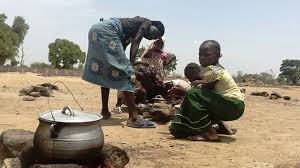
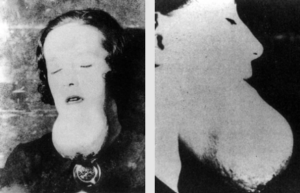

29 comments
Cielo Jerusalem Vargas
Your article reflects the time and effort spent on composing all facts about the terror group Boko Haram. The structure of your article allows readers to fully understand how Boko Haram was able to influence much of Nigeria’s society. It seems as if there is always a “charismatic leader” in every religion or group that will influence a group of people to follow their ideals behind the guise of certain religion as you mentioned. It is truly disheartening to learn about the methods used to recruit members into their group and how they targeted many women and children. That is through the creation of schools or mosques available to vulnerable populations. I truly appreciated you including that these ideals do not align with true Sharia or Islamic law. Overall, your article was very informative.
Rebecca Amaya
The fact I found most unexpected about Nigeria’s security challenges was how long Boko Haram has been able operate even with years of military intervention and international attention. It seemed as if their presence had retreated or their influence declined but this article reinforces that because of Nigeria’s poverty and weak government, the organization’s extremism still withstands strongly. The part that resonated with me is that Nigerian citizens, especially women and children, are unfortunately caught in the crossfire as innocent bystanders. What role can community led initiatives play in countering Boko Haram’s ifluence where government efforts have fallen short?
Teagan McSherry
I was surprised to learn how deeply entrenched Boko Haram’s influence remains in Nigeria, despite ongoing military efforts. This highlights the complexity of combating terrorism, where military action alone may not suffice without addressing underlying issues. I resonated with the personal stories and accounts of affected individuals, bringing to light the profound suffering and disruption caused by this terrorism. What do you believe is the biggest obstacle preventing long-term peace and stability in Nigeria despite efforts to defeat Boko Haram?
Sarah
Great article here, well done! I’m familiar with Boko Haram but this article provided a lot more context and depth. I was shocked to read that “Boko Haram’s attacks have displaced an estimated 2.5 million people and killed over 50,000 civilians.” I know that Nigeria to an extent practices consociationalism in their government, requiring representation for the major religious groups in government. In some countries, governments have given terrorist groups a seat at the table to negotiate. Other countries say that negotiating with terrorists is always wrong. Do you think Nigeria could benefit from negotiation?
Sarah Etter-Hinojosa
Great article here, well done! I’m familiar with Boko Haram but this article provided a lot more context and depth. I was shocked to read that “Boko Haram’s attacks have displaced an estimated 2.5 million people and killed over 50,000 civilians.” I know that Nigeria to an extent practices consociationalism in their government, requiring representation for the major religious groups in government. In some countries, governments have given terrorist groups a seat at the table to negotiate. Other countries say that negotiating with terrorists is always wrong. Do you think Nigeria could benefit from negotiation?
Carollann Serafin
1) I was surprised to learn about the Boko Haram and learning about how powerful the group was and its impact on the Nigerian People.
2) The most interesting part of this article was learning about the schools girls and the attack that occurred to them and how it affected the community.
3) My question would be what was your inspiration on writing this article and who you feel you got your message across
Micaella Sanchez
I was struck by how deeply rooted Boko Haram’s violence is in Nigeria’s complex history of colonization, religion, and political instability. Learning about the group’s brutal tactics and the challenges in countering them made me reflect on how fragile peace can be. I now better understand that defeating terrorism requires more than force—it demands justice, education, and long-term support for affected communities. This was a good job on informing people about the territories they have inflicted on the people of Nigeria.
Lashanna Hill
What was unexpected to me in learning about their security challenges was the Jihadist terror group that is targeting Christians in Nigeria. The best part of the story that resonated with me was how the tactics used by Boko Haram, such as the kidnapping of over a hundred girls taken by force from school in April of 2024, has flourished with their attempted agenda of expelling Christians from Nigeria.
What can be attributed to the reason why Boko Haram is still thriving with terror in Nigeria?
Jesse Turnquist
Very well-written article on Boko Haram. This is an important read to understand how strong an ideology is. We see this all around the world within many groups. Most times, taking out the leader will not defeat the ideology of these extremist groups—sometimes it might. I was surprised that the ideology and beliefs of Boko Haram, however, stayed as strong as they did. What are your thoughts on how to defeat many of these terrorist factions’ ideologies around the world? Is it even possible?
Mia Ramirez
I learned from this article about Boko Haram, a terrorist group. What caught my attention was that they killed over 50,000 civilians. This article was very informative and the author excelled with the storytelling! I had no idea Nigeria faced this extreme level of terrorism, what struck me the most was how these terrorists mainly targeted women and children. My question: How do you think Nigeria should avoid future debt to disempower the terrorism?